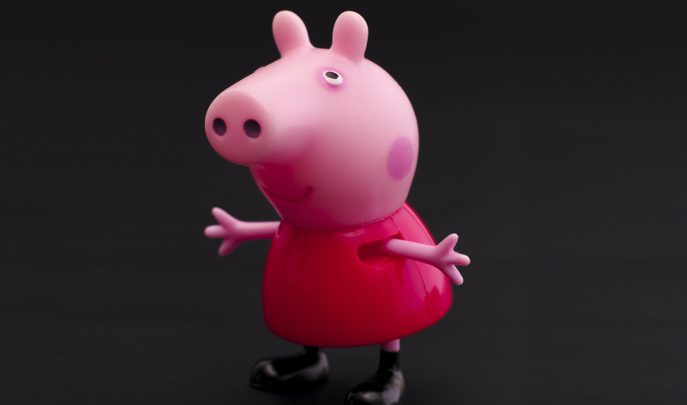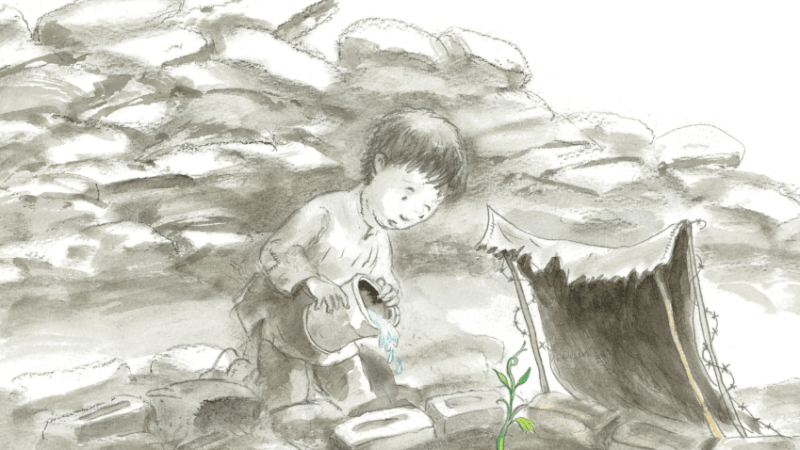No More Peppa Pig – How A Nursery Ban On Cartoon Characters Is Having Huge Benefits

Having removed popular TV characters from clothes and learning materials, Oak Grove nursery's children are exploring education without Dora's help
- by Amii Spark

We live in a day and age where commercialism runs rampant. No one is safe from the adverts on TV, the internet, radio and pretty much everywhere else we look. They try to persuade us that we cannot possibly be happy until we have a particular product in our possession. None suffer more from being targeted by such adverts than children and, in turn, their parents.
Commercialism is what has given rise to any number of ubiquitous popular children’s cartoon characters. They are splattered everywhere – on clothes, pencils, bedding, colouring books, shoes, décor and anything else that you can name.
Children are constantly surrounded by them, and due to their inability to understand the difference between reality and fantasy, they really believe the characters are real. To combat this, in my nursery we have introduced a nursery-wide uniform and banned all cartoon character items.
You won’t find them in the books we have, they feature in none of the activities we provide or the learning materials we have available, and we do not listen to any of their music or sing any of their songs.
We have created a haven for our children away from the big companies, who in reality are only trying to getting money out of these children’s parents. What has happened as a result is very interesting.
Firstly, children of all ages have shown improved concentration. They are no longer constantly talking about the characters as they have no visual triggers. This means they can properly focus on the items we have provided them with to learn from.
They are also a lot less disruptive – young children quite frequently become obsessed with cartoon characters, which leads, on occasion, to them becoming upset when they spot another child wearing a top featuring the character they like, and they don’t have one.
This is also applies to learning materials and books that have certain characters on them; children can become very possessive of them if they have a particular fixation on that character.
Secondly, we were more able to expose the children to a wide range of real-world vocabulary. This was especially evident when we looked at books with photographs of real-life scenes such as the farm, the doctor’s office and so on. Again, as they were not distracted by the characters, they were able to identify more objects and were cognitively able to take in more new words. Also, the fact that the images that we were relating the words to were actual photos meant that the children actually knew exactly what the object looks like.
Thirdly, we could actually explore real animals and how they really live. The biggest issue with cartoon characters is that they quite frequently show animals doing things that animals cannot do, such as walking on two legs, talking to people, driving cars, wearing clothes and so on.
As mentioned above, young children are not able to tell what is real and fantasy, so they assume that what they see is real. If a young child is convinced that pigs walk on two legs and can drive cars then it can be hard for them to understand the ways in which pigs actually do act.
In order for us to provide our children with the best start, we need to consider what information we’re providing them with and putting importance on.
A solid understanding of what is real is vital for true imagination to develop, as imagination is understanding what is real and being able to think beyond it. It’s not parroting the false sense of reality that you have been given because you honestly don’t know any better.
All children deserve to be fully aware of the wonderful world that we actually do live in. There is so much of reality to see and experience that it really makes me question, are cartoon characters actually needed for children’s development?
A former preschool deputy manager in the UK, Amii is also the founder of The Olive Grove, a Montessori-based parent education and support service in Malta.











